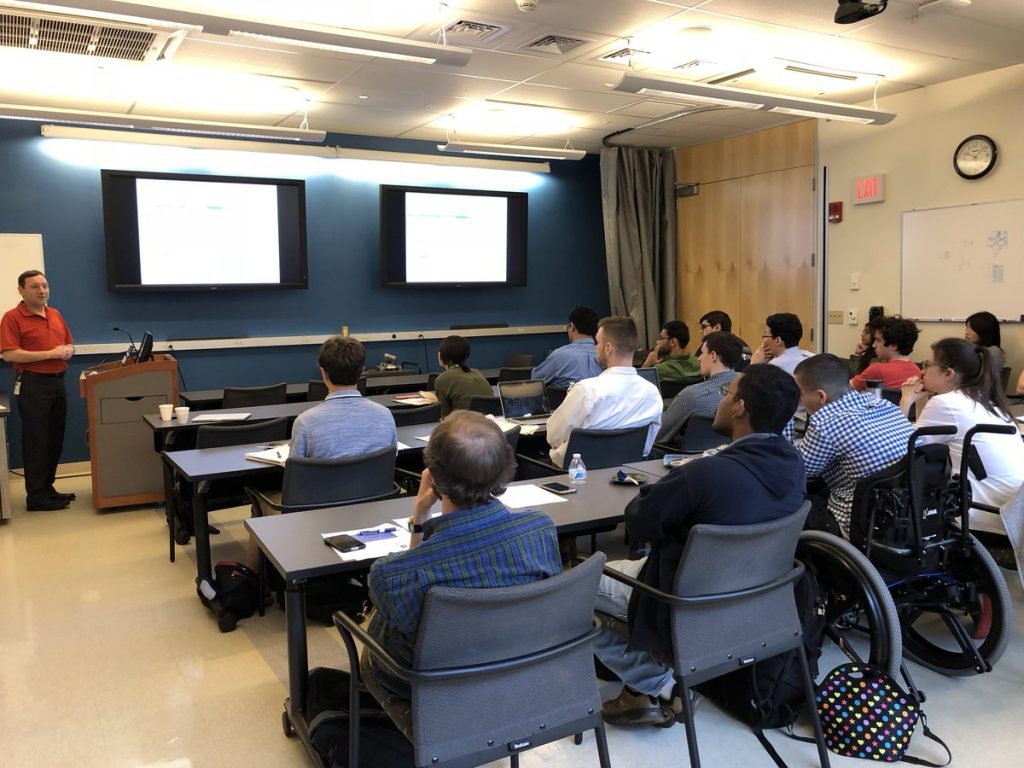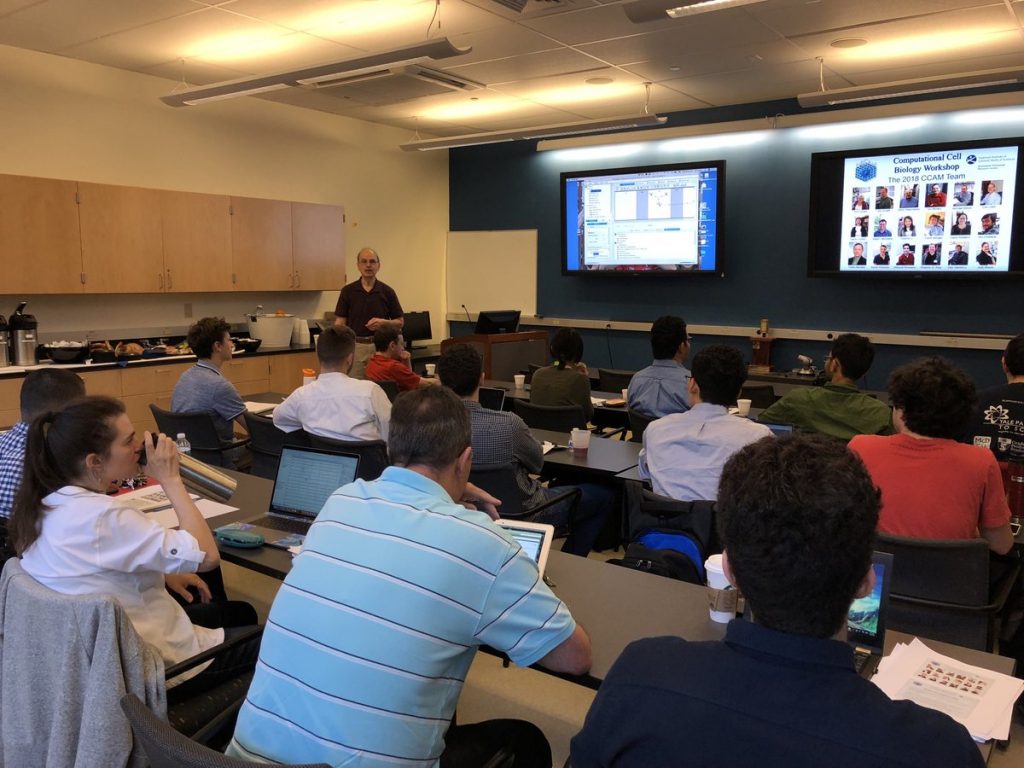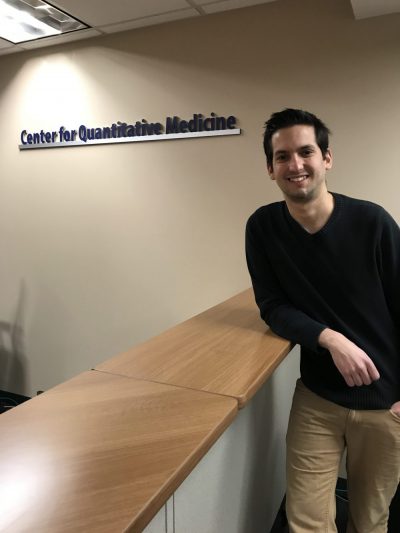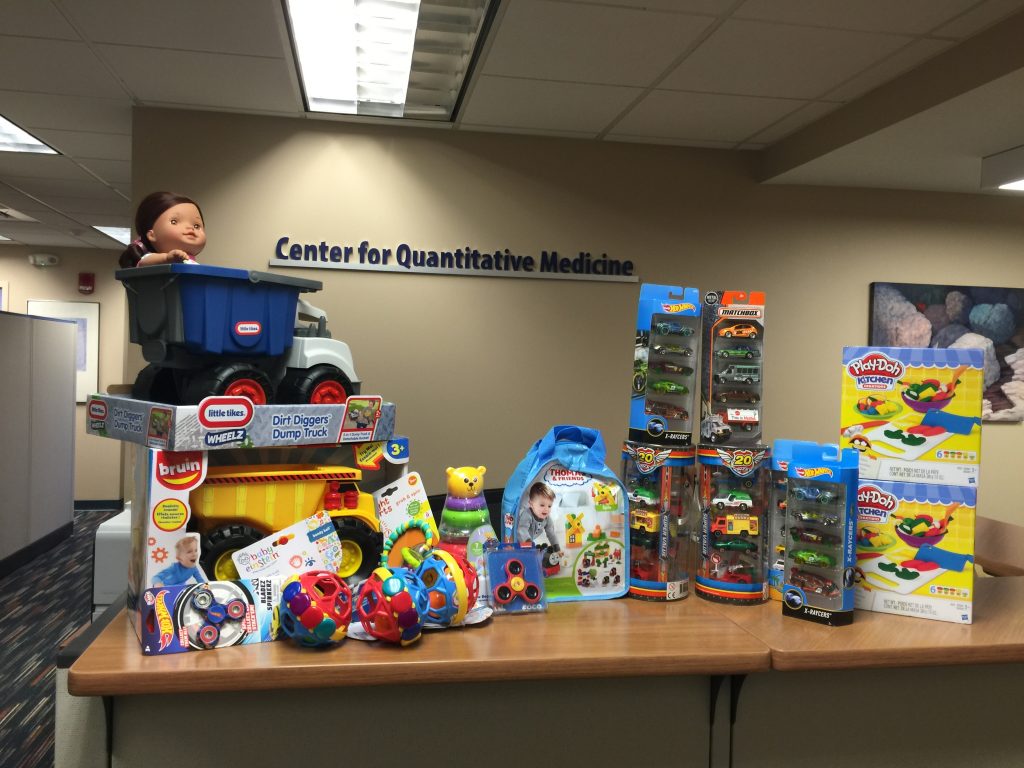The 19th Annual Workshop on Computational Cell Biology will be sponsored by the Center for Cell Analysis and Modeling (CCAM) at the University of Connecticut School of Medicine on June 11-14, 2018. This is an intense hands-on course designed to enable cell biologists and biophysicists to develop models of their experimental system using Virtual Cell and COPASI software systems. As a NIH Biomedical Technology Resource, we are charged with supporting NIH fundedresearch through collaborative projects. Accordingly, priority for acceptance
into the course is given to NIH-funded laboratories.
The course will consist of ½ day of introductory lectures presented by the developers of the two software platforms. The remaining 3.5 days will consist of continuous interactive, hands-on sessions using the software for developing models and performing simulations. The course will be limited to about 12 people to allow for extensive one-on-one teaching sessions and to promote in-depth scientific discussions among the participants and instructors. Course instructors will include Michael Blinov, Ann Cowan, Leslie Loew, Pedro Mendes, Ion Moraru,
Jim Schaff, and Boris Slepchenko.



